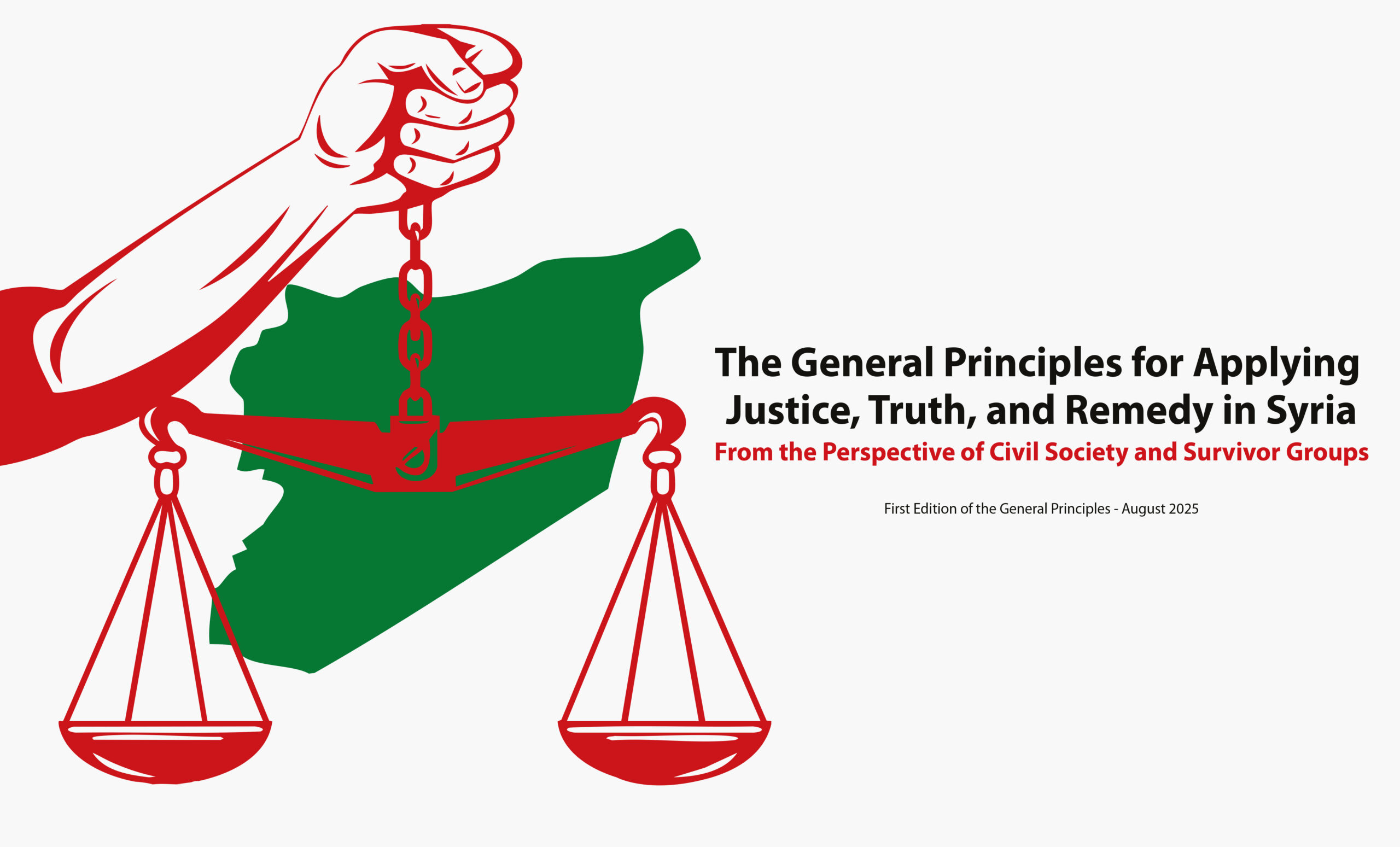Sep 1, 2025 | This post is also available in: Arabic

First Edition of the General Principles – August 2025
Today, a genuine opportunity exists for Syrians to reclaim their country and outline the features of a new future and a new social contract founded upon justice, truth, accountability, and the rule of law. Seizing this opportunity necessitates a serious addressing of the legacy of authoritarianism, grave human rights violations, international crimes, and deep societal rifts caused by over a decade of conflict following decades of systematic authoritarianism and oppression.
Amid the official steps being undertaken by the transitional government on the path of justice, truth, and remedy—such as the establishment of the National Transitional Justice Commission and the National Commission for the Missing and the commencement of their operations, in addition to the issuance of Presidential Decree No. (149) appointing the members of the National Transitional Justice Commission—there arises an urgent need to establish a clear and transparent national framework for these pathways. This framework must be based on constant communication from the government and ensuring access to the necessary information. It should guarantee a comprehensive vision grounded in human rights principles and inclusive of all affected groups, while also ensuring this pathway is harmonized with other relevant steps, such as those being taken by the Ministry of Justice to hold figures of the former regime accountable.
International experiences have shown that the success of transitional justice pathways requires a comprehensive national consensus that reflects the interests of all victims without discrimination and ensures their active participation in shaping their future. In the Syrian context, where political, institutional, security, economic, and social challenges are deeply intertwined, the necessity of such a framework becomes even more pressing, serving as the guarantor for any serious and effective justice process.
Over the past years, civil society organizations and victims’ families’ associations have played a pivotal role through their expertise in documentation, legal support, advocacy, combating impunity, preserving collective memory, and countering attempts to close the files of violations without accountability. At this stage, despite the challenges, these entities must continue to play a vital role as the expertise, technical support, and access they bring to the table can contribute to enhancing the work of national institutions and ensuring their independence, as well as the inclusivity and fairness of the process.
Hence, it is important that civil society organizations and victims’ families’ associations declare a shared commitment to general principles that unify their vision and guide their collective action to achieve remedies for all victims and safeguard the dignity and rights of all Syrians without discrimination. No transitional justice pathway in Syria will succeed unless it is founded upon clear principles agreed upon by all relevant stakeholders, thereby transforming justice into a genuine instrument for building a state of equality and the rule of law.
Therefore, the undersigned civil society organizations and victims’ families’ associations, who contributed to the preparation of this document, concur on the General Principles listed below. These principles represent the minimum consensus required to establish a comprehensive pathway for justice, truth, and remedy in Syria—one that ensures redress for victims and their families, achieves justice, and guarantees the non-recurrence of crimes and violations in the future.

